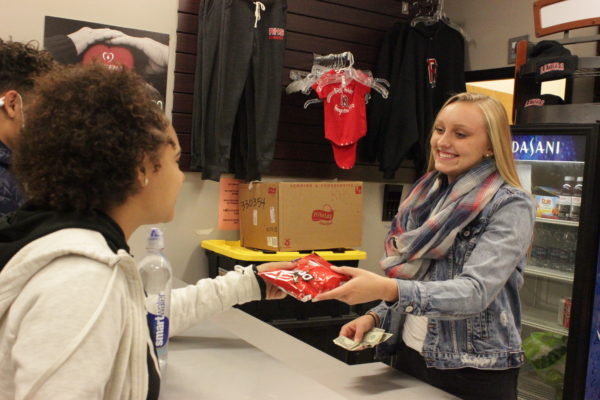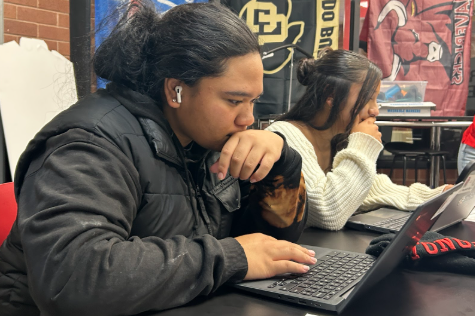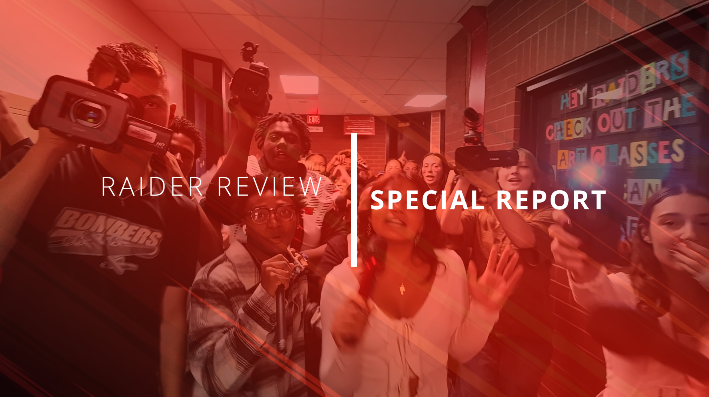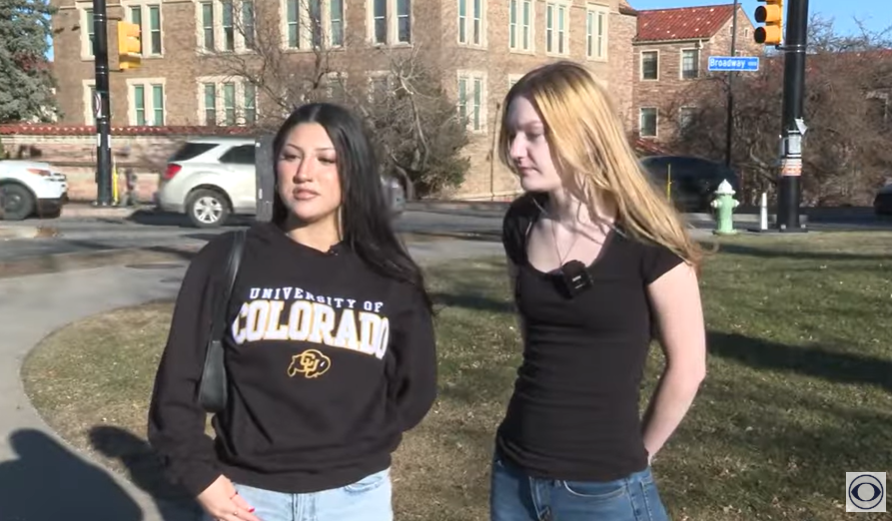Feature Photo By: Sara Elouadi – Senior Kyannah Lemasters buys a bag of chips from the locker from senior Lauren Graff. The locker is a source of income for many clubs and has had trouble selling the healthier snack options.
Over the last few years, schools have been working towards giving students healthier food choices. Changes that have been seen include removing vending machine snacks, healthier breakfast and lunch choices, and going so far as to remove unwholesome snacks from student-run stores, as seen with Rangeview. The Aurora Public Schools (APS) district is now enforcing their policy to cut back on selling unhealthy snacks throughout sports and clubs in schools.
Students who participate in clubs and sports throughout the year say that fundraising is a big deal. With a lack of proper funding from APS administration, clubs such as the National Spanish Honor Society and even sports such as baseball have resorted to raising funds from their fellow students. According to students apart of clubs, fundraising with hot selling items targeted at teens (specifically junk food) has been a reliable source for quick and efficient funds for years.

Students in those clubs have always sold chips, cookies, candy, and other small junk food snacks throughout school hours — especially during lunch — to the rest of the student body.
This year, that rule has been changed.
“The district is telling us we cannot sell what they consider high sugary, high salt snacks to students in order to comply with the federal regulation in order to receive federal funding,” said Mr. Strouse. As the athletic and activities director at Rangeview, it is unclear whether he believes this change in policy will affect the ability for sports and student-run clubs to grow financially.
Some students don’t agree with the changes that have been made: “Snacks like chips and cookies are what really sell,” said senior Dawson Birch. “Students don’t want to eat healthy snacks like fruit snacks.”
Although students are not allowed to sell unhealthy snacks during the school day those snacks are allowed to be sold at after-school activities. According to junior Alli Powell, concession stand funds all go to sports this year, and because the new guidelines are more lenient on concession stands snacks, the change is not expected to heavily affect sports.
On the other hand, the school store sales affects many clubs as well as free-reduced lunch. “The new USDA guideline (smart snacks) that we have to follow has affected how much food we are selling in the school store because students aren’t wanting to buy the healthier foods. There is a lack of income at the school store when compared to last year,” said Alli Powell.
Clubs such as leadership used to sell less healthy snacks and are struggling to find snacks that appeal to the student body. “The change has made it hard for us to fundraise, we’re still trying to figure things out,” said junior Kyah Caley.
This new change might affect fundraising for clubs and sports for years to come.











